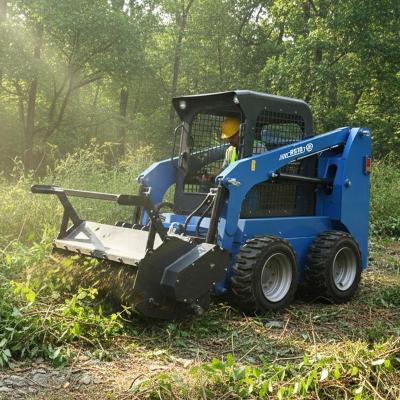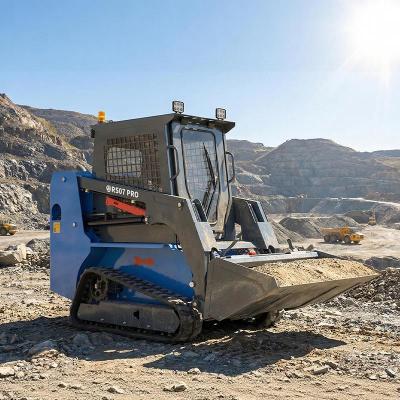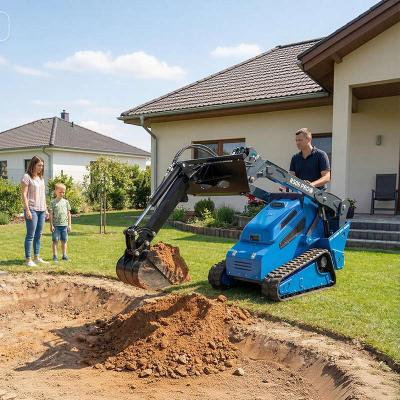Skid Steer vs. Compact Wheel Loader vs. Compact Track Loader
Understanding Skid Steer Loaders
Skid steer loaders are compact wheel machines renowned for their maneuverability and versatility on hard, flat surfaces. Their unique side-to-side steering allows one set of wheels to move faster than the other, enabling extremely tight turns and efficient operations in confined spaces.
These machines feature a four-wheel design that delivers quick mobility and responsiveness. Skid steer loaders can easily traverse concrete, asphalt, or paved areas without damaging the surface. They are compatible with a wide range of attachments, including buckets, pallet forks, augers, and trenchers. Common applications include demolition, landscaping, snow removal, and material handling.
The combination of speed and compact turning radius makes skid steer loaders particularly suitable for urban construction sites and areas where space is limited. Contractors often appreciate the ease of switching attachments for diverse project needs.
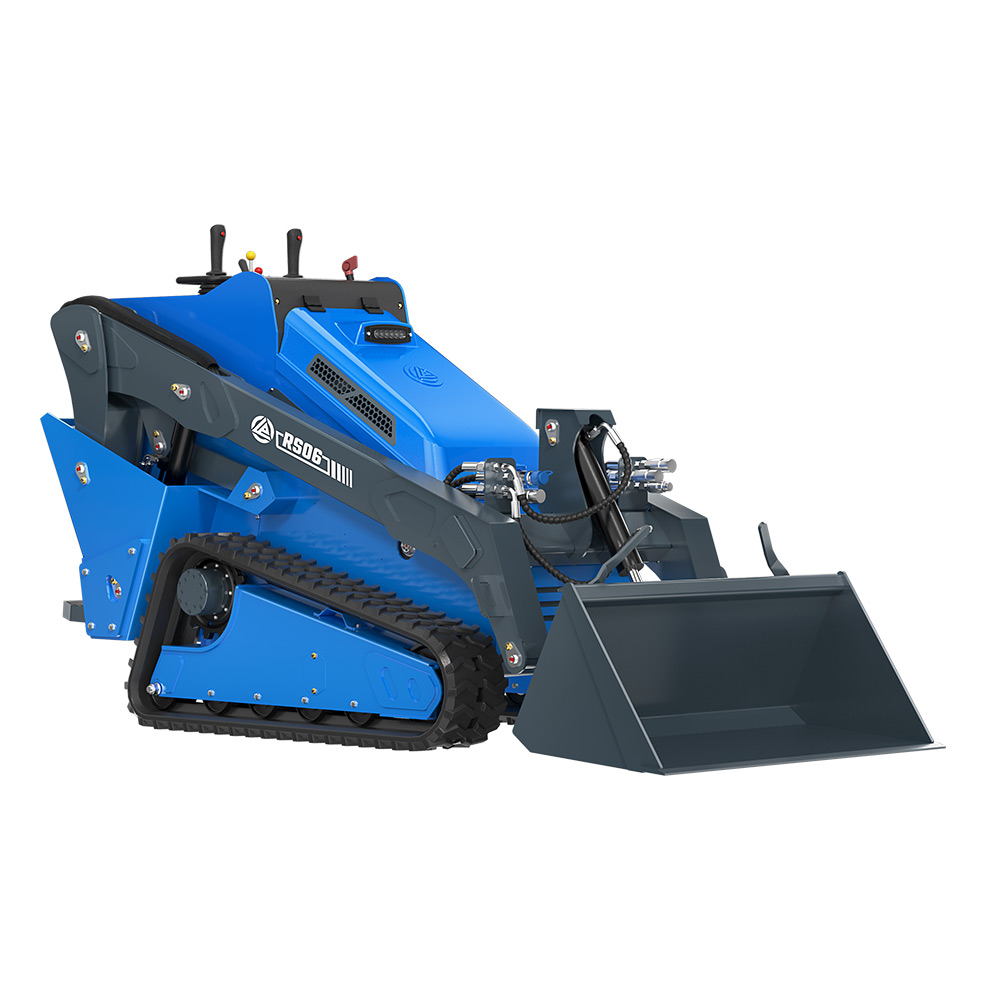
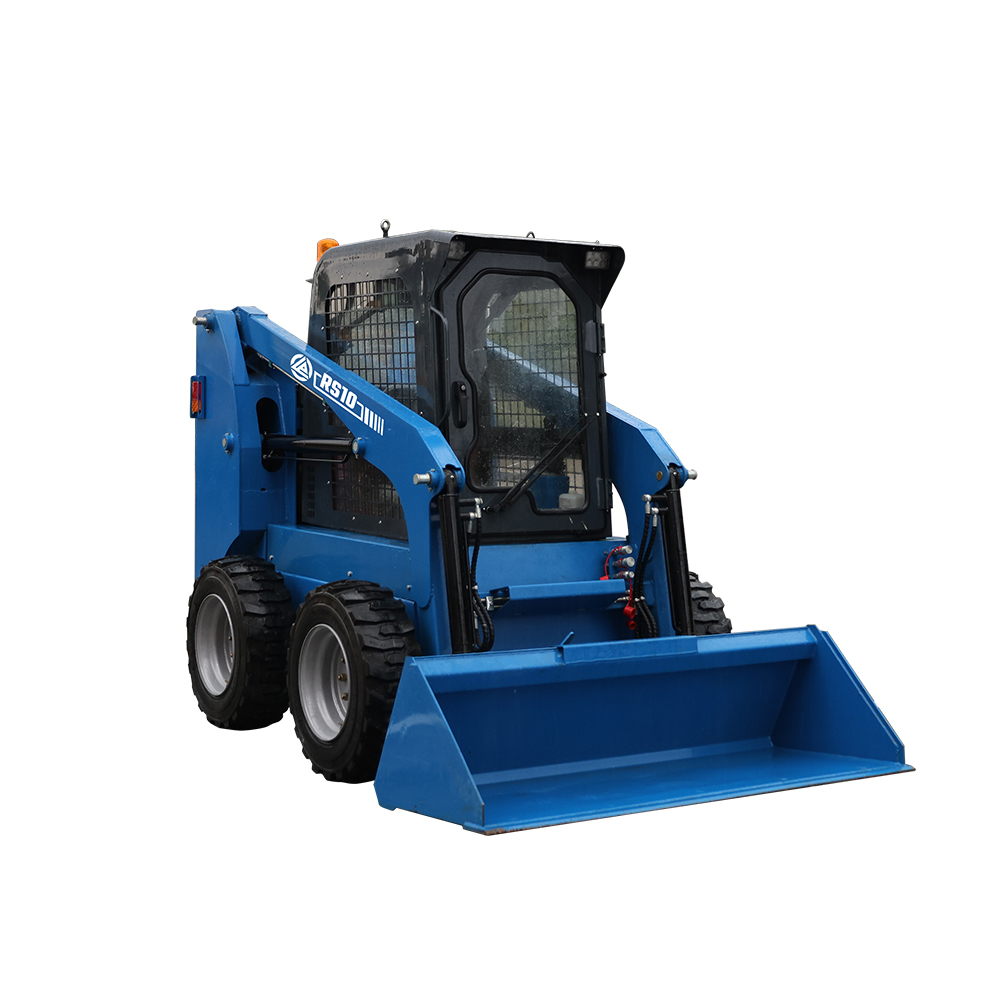
Advantages of Compact Track Loaders (CTLs)
Compact track loaders function similarly to skid steer loaders but replace wheels with rubber or steel tracks. This design increases ground contact area and enhances traction, making them ideal for challenging terrains.
Track loaders excel on uneven, soft, or muddy surfaces where wheeled machines may struggle. Their lower ground pressure reduces surface damage, preserving delicate landscapes like grass, sand, or soft soil. Although CTLs generally move slower than wheel skid steers, their stability on rough terrain provides significant operational advantages. Heavy-duty lifting, land grading, and site clearing benefit from the superior traction and balance that CTLs offer.
Maintenance requirements differ as well. While tracks need periodic tensioning and eventual replacement, the durability on soft or uneven ground often outweighs these costs for demanding jobs.
Key Differences Between Skid Steers and CTLs
When comparing skid steers to compact track loaders, several factors stand out. Skid steers are faster and more agile on hard, flat surfaces, while CTLs provide excellent traction and stability on soft, uneven terrain. Skid steers generally have lower upfront costs and tire replacement expenses, whereas CTLs demand higher initial investment and track maintenance. Ground impact is another consideration; skid steers may create ruts on soft surfaces, while CTLs distribute weight more evenly, minimizing damage.
Choosing the right machine depends on the site conditions, project type, and operational priorities. Contractors often balance speed, maneuverability, and cost with traction, stability, and surface preservation.
Selecting the Right Machine for Your Project
If your work is primarily on paved or compacted surfaces, skid steer loaders offer the speed, flexibility, and cost-efficiency required. They are ideal for short-term projects, confined spaces, and applications where rapid attachment changes are advantageous. Urban construction sites, warehouses, and light building projects often favor skid steers.
For soft, uneven, or muddy terrain, compact track loaders are more suitable. They maintain stability on slopes, minimize ground disturbance, and provide superior lifting capacity for heavy-duty tasks. While they entail higher upfront and maintenance costs, the enhanced performance on challenging terrain can prevent delays and costly site repairs.
Many contractors and rental companies find value in maintaining both types of machines. Some modern brands, including RIPPA, even offer interchangeable wheel and track systems, allowing operators to adapt to different jobsite conditions seamlessly.
Why Choose RIPPA Loaders
RIPPA, a leading Chinese manufacturer, provides both skid steer and compact track loaders that combine performance, affordability, and adaptability. Key advantages include factory-direct pricing, international dealer support, and global warehouses for fast delivery.
RIPPA loaders offer dual configurations for various terrains, high hydraulic efficiency, and compatibility with multiple attachments. Popular models such as RS03, RS04, RS06, RS07, and RS20 deliver robust power and reliability. Their machines are suitable for contractors and distributors worldwide seeking cost-effective, durable equipment solutions.
RIPPA's combination of technical expertise and international support ensures contractors can achieve optimal performance and productivity, whether working on urban hardscapes or soft, uneven sites.
